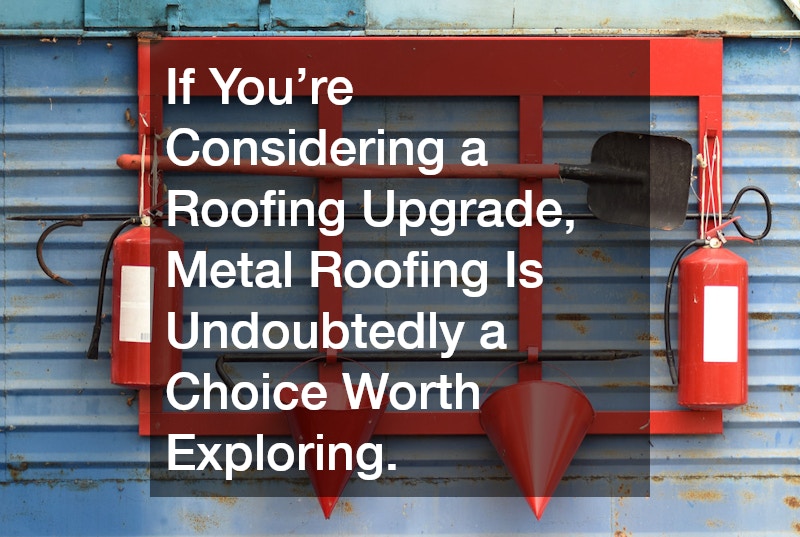When it comes to choosing a roofing material for your home or commercial building, the decision often boils down to two popular options: metal roofing and traditional shingles. While both materials have their merits, metal roofing stands out in several key areas, offering significant benefits that make it an increasingly popular choice among homeowners and builders alike. Below, we explore the advantages of metal roofing over shingles, highlighting why this durable and versatile material is worth considering for your next roofing project.
Durability and Longevity
One of the most significant advantages of metal roofing is its exceptional durability. Metal roofs are built to withstand harsh weather conditions, including heavy rain, snow, high winds, and even hail. Unlike shingles, which can crack, warp, or lose granules over time, metal roofs maintain their integrity for decades. Many metal roofing systems come with warranties of 40 to 70 years, far surpassing the average lifespan of asphalt shingles, which typically last 20 to 30 years. Additionally, metal roofing is resistant to rot, mildew, and insect infestations, issues that can compromise the performance and longevity of shingles. This durability makes metal roofing a cost-effective investment, as it reduces the need for frequent repairs and replacements.
Energy Efficiency
Metal roofing is an excellent choice for homeowners looking to improve energy efficiency. Metal roofs reflect sunlight, reducing heat absorption and helping to keep indoor spaces cooler during hot months. Many metal roofing systems are coated with specialized reflective finishes that enhance this effect, lowering cooling costs significantly. In contrast, asphalt shingles absorb heat, which can lead to higher indoor temperatures and increased energy consumption. By opting for metal roofing, you can enjoy long-term savings on energy bills while contributing to a more sustainable and environmentally friendly home.
Lightweight and Easy Installation
Metal roofing is considerably lighter than shingles, which makes it easier to transport and install. The lightweight nature of metal roofs also reduces the structural strain on your building, making them an ideal choice for both new constructions and roof replacements. Shingles, on the other hand, are heavier and may require additional support, especially in regions with frequent snowfall. The ease of installation associated with metal roofing can also result in lower labor costs and faster project completion times.
Low Maintenance Requirements
Another advantage of metal roofing is its low maintenance requirements. Metal roofs are designed to shed snow and rain efficiently, reducing the risk of water damage and ice dams. Additionally, metal surfaces are less prone to accumulating debris, moss, or algae, which often plague shingle roofs. Routine inspections and occasional cleaning are usually sufficient to keep a metal roof in excellent condition, while shingles may require more frequent repairs due to issues like curling, cracking, or granule loss.
Environmental Benefits
Metal roofing is a highly sustainable option compared to shingles. Most metal roofs are made from recycled materials and are fully recyclable at the end of their lifespan, minimizing waste and environmental impact. This aligns with the growing demand for eco-friendly building materials and practices. In contrast, shingles are often made from petroleum-based materials and contribute to significant landfill waste. By choosing metal roofing, you not only benefit from its superior performance but also make a positive impact on the environment.
Aesthetic Versatility
Metal roofing offers a wide range of design options to suit various architectural styles and personal preferences. Available in numerous colors, finishes, and profiles, metal roofs can mimic the appearance of traditional shingles, tiles, or even slate, providing aesthetic flexibility without compromising on durability. Shingles, while available in different colors and styles, lack the variety and modern appeal of metal roofing. This versatility allows metal roofs to complement both contemporary and traditional designs, enhancing your home’s curb appeal and overall value.
Fire Resistance
Metal roofing is non-combustible and offers superior fire resistance, making it a safer option for homes in wildfire-prone areas or regions with a high risk of lightning strikes. Asphalt shingles, while treated to be fire-resistant, are still more susceptible to damage under extreme heat conditions. The fire-resistant properties of metal roofing not only provide peace of mind but may also result in lower insurance premiums, adding to its financial benefits. When weighing the advantages of metal roofing over shingles, it’s clear that metal roofing excels in durability, energy efficiency, sustainability, and aesthetic appeal. Its lightweight nature, low maintenance requirements, and superior fire resistance further solidify its position as a leading choice for homeowners seeking long-term value and reliability.
While the upfront cost of metal roofing may be higher than that of shingles, the long-term savings on energy, repairs, and replacements make it a cost-effective investment. By opting for metal roofing, you can enjoy a roof that not only protects your home but also enhances its beauty, functionality, and environmental sustainability. If you’re considering a roofing upgrade, metal roofing is undoubtedly a choice worth exploring.
.

